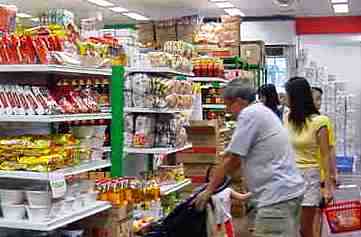
New Delhi, November 2: Manufacturers of 19 commodities, mostly food items like biscuit and bread, will have to package their products in standard sizes from Friday — a move aimed at protecting consumers from unfair trade practice by companies of reducing weight without changing the retail price.
The government has made mandatory standardised packaging of 19 items and non-compliance would invite penal action. “In the interest of common consumer, from today onwards 19 commodities of day-to-day use, like bread, biscuits, tea can be sold in specified standard packs only.
“Manufacture, packing or import of these commodities in non-standard packs will invite penal action,” Consumer Affairs Ministry said in a statement.
Following complaints regarding unfair reduction in the quantity of packaged products from some consumer organisations, the government has amended the Legal Metrology (Packaged Commodities) Rules 2011. A notice was issued on June 5 this year in this regard.
“It has been observed that some manufacturers in the country are reducing quantity of packaged products by small fractions without making a change in the price of the product,” Food Minister K V Thomas had said.
The other items are — cereals, pulses, edible oils, vanaspati, ghee, butter oil, rice (powder), atta, rava, suji, baby food, weaning food, un-canned packages of butter and margarine, milk powder, aerated soft drinks, non-alcoholic beverages, mineral water and drinking water, cement in bags, paint, varnish, soaps, non-soapy detergents (powder), materials for beverages.
The packaging standards for bread (including brown bread but excluding bun) has been specified as 50gm and thereafter in multiples of 50gm up to 500gm. Above 500gm, the weight of pack should be in the multiples of 100gm, the statement said.
In case of biscuits, the sizes has been fixed at 25gm, 50gm, 60gm, 75gm, 100gm, 120gm, 150gm, 200gm, 250gm, 300gm, thereafter in multiples of 100gm up to 1 kg and thereafter in multiples of 500gm up to 5 kg.
The ministry, however, said that non-standard packs manufactured and packed on or before 31st October and ready for sale in different retail outlets would be exempt from penal action.






Comments
Add new comment